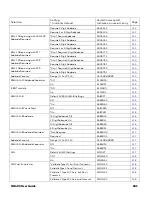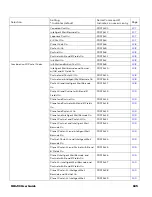
HH490 User Guide
191
Mitigation Steps
Implement file system encryption.
Use HTTPS when using Web servers across untrusted networks.
Use a two-factor authentication method such as Google Authenticator
when the Honeywell device is connecting to Web applications.
Secure wireless devices.
For information, see Secure Wireless Devices
Set the minimum level of privilege for all external accounts and
enforce a strong password policy.
Use the most recent version of the SDK that supports your application.
Disable all unnecessary access ports, such as FTP.
Use a VPN when the Linux system requires data to traverse an
untrusted network.
Use SSL for communication between native applications and specialty
servers.
Use intrusion detection on WLAN networks.
Unauthorized Internal Access
This threat encompasses unauthorized access from people or systems with direct access to a
Honeywell system component.
This threat is most difficult since attackers may have legitimate access to part of the systems and
are simply trying to exceed their permitted access.
Unauthorized internal access can result in:
•
Loss of system availability.
•
The capture, modification, or deletion of data, and
•
The theft or damage of system contents.
Mitigation Steps
Implement strong password protection on Honeywell Solution
components and include a password lifetime management policy,
reuse policy, and strength of policy for passwords.
Go to
download the user guide specific to your
computer model.
Monitor system access
Securing barcode scanner series
Honeywell recommendations for securing barcode scanner series:
•
Enforce the most restrictive set of rights/privilege to access barcode scanner series and it’s assets needed by users
or processes for the performance or specific tasks. Specifically prohibit, remove, and/or restrict the use of
unnecessary functions, ports, protocols, and/ or services. This would include access to scripts debuggers, etc. Log
requests for access to assets.
•
Use the proper setting of privilege.
















































